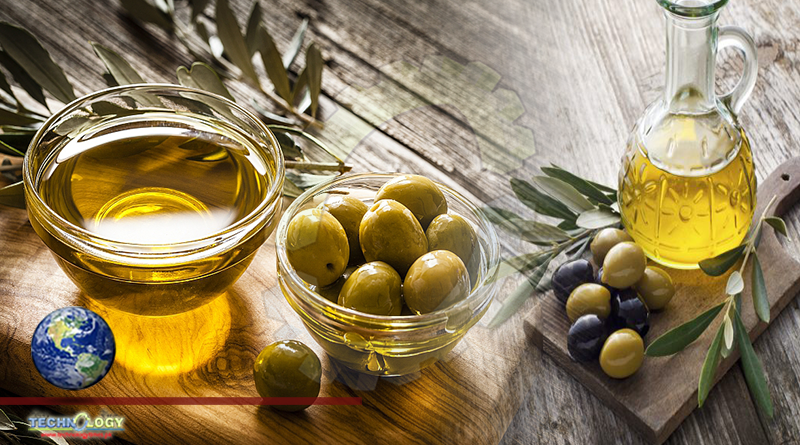The World Health Organization (WHO)Trusted Source estimates that over 55 million people worldwide suffer from dementia.

Numerous advantages for the body and brain have been associated with olive oil. Instead of margarine or mayonnaise, researchers have found a link between daily olive oil consumption and a lower risk of dementia-related death.
The World Health Organization (WHO)Trusted Source estimates that over 55 million people worldwide suffer from dementia. Dementia is the seventh leading cause of death for senior citizens, with an estimated 10 million new cases every year.
Alzheimer’s disease (AD), the most common type of dementia, is thought to affect 6.7 million Americans over the age of 65.
According to a news release, the new study discovered that people who used olive oil on a daily basis had a 28% lower risk of passing away from dementia than those who did not.
The study examined health records from 1990 to 2018 for 31,801 men and 60,582 women who were cancer- and cardiovascular-disease-free. For 28 years, their health was monitored.
The study authors found that switching from margarine or mayonnaise to olive oil was linked to an 8–14% lower risk of dementia-related death.
The complete findings of the study will be presented this week at the NUTRITION 2023 conference.
In the Mediterranean diet, olive oil is a crucial component for good health
The study’s inspiration, according to its author Dr. Anne-Julie Tessier, a registered dietitian and nutrition research fellow at the Harvard T.H. Chan School of Public Health, was the well-documented healthfulness of the Mediterranean diet.
Dr. Tessier stated to Medical News Today, “Given that olive oil is the main source of added fat in a typical Mediterranean diet, we were interested in examining its association with fatal dementia.”
In their study, Dr. Tessier and her associates discovered that the link between olive oil and a lower risk of dementia-related death persisted regardless of the quality of the subjects’ diets, including how closely they followed the Mediterranean diet.
How olive oil may enhance brain function?
Dr. Tessier hypothesised about what it is about olive oil that causes its benefits for the brain:
Due to its high concentration of monounsaturated fatty acids, which may encourage neurogenesis, olive oil may have a positive impact on cognitive health. Additionally, it has vitamin E and polyphenols with antioxidant activity.
While not involved in the study, Dr. Domenico Pratic, director and professor at Temple University’s Alzheimer’s Center, stated that “other compounds such as oleocanthal and oleuropein are [also] considered beneficial.”
Dr. Pratic continued, “There is also some evidence suggesting that the combination of all these various compounds, rather than a single element, is what produces the beneficial effects.
Oleic acid may play a role in brain health
Professor at Auburn University’s Harrison College of Pharmacy Dr. Amal Khalil Kaddoumi discovered that olive oil can protect the brain, enhance memory, and lower Alzheimer’s biomarkers.
In her 2022 study, she discovered that mild cognitive impairment patients who consumed extra-virgin olive oil (EVOO) had improved blood-brain barrier function and functional connectivity between brain regions (MCI).
The functional brain activation for memory tasks in cognition-related brain regions was increased by refined olive oil (ROO). Olive oil is more brain-protective than margarine and mayonnaise consumption, according to the study. Dr. Tessier noted that artificial trans fats found in commercial mayonnaise and margarine may be the cause of some variations in fatal dementia levels.
Extra virgin olive oil: Benefits and preparation
The majority of studies—Dr. Kaddoumi’s being an exception—only focus on EVOO, so there is more information available about its advantages, according to registered dietitian Kristin Kirkpatrick.
Extra virgin olive oil, which is produced using a cold mechanical press, is typically thought to have the best health benefits, according to Dr. Pratic.
The “extra virgin” standard, according to Kirkpatrick, depends on this processing technique because it “will retain the most nutrients from the olive.”
Kirkpatrick posted advice on how to pick the best-quality olive oil and the best ways to store it after warning that some manufacturers covertly combine EVOO with other oils to reduce their costs.
According to Dr. Dr. Pratic, “it is common opinion that the best way to use it for a health benefit is raw (on your salad, on a piece of bread, etc.)” when it comes to the healthiest way to consume EVOO.
However, Dr. Kaddoumi added that cooking with olive oil is also acceptable because it has a high smoking point and is therefore less likely to be heated to the point where it would undergo a chemical change.
What daily amount of olive oil should you eat?
A healthy daily serving of olive oil, according to Dr. Pratic, is two tablespoons.
Kirkpatrick stated, “I advise my patients to aim for at least 3 tablespoons a day for brain health,” noting that studies range from 1 to 5 tablespoons daily.
Dr. Tessier responded when asked if a person could consume too much olive oil on a daily basis:
Although it is important to note that few individuals consumed above 15 g/day, or 15,000 mg/day, of olive oil, Dr. Tessier said, “we did not observe an amount at which there was no longer an association.”
Dr. Tessier said, “We found a clear linear dose-response association between higher daily consumption of olive oil and lower risk of fatal dementia.”